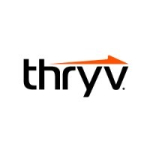TechnologyCounter provides genuine, unbiased real user reviews to help buyers make informed decisions. We may earn a referral fee when you purchase through our links, at no extra cost to you.
List of 15 Best Scheduling Software
Showing 1 - 15 of 220 products10to8 is a online scheduling software designed to streamline your business and enhance communication with your clients. With its user-friendly interface and seamless integrations, 10to8 simplifies appointment management, reduces no-shows, and boosts...Read 10to8 Reviews
Are you tired of juggling employee scheduling and managing your restaurant? Look no further than 7shifts, the all-in-one employee scheduling software. With intuitive features and real-time updates, 7shifts streamlines your workforce management so you...Read 7shifts Reviews
HouseCall Pro is a solution for managing your business on-the-go. With user-friendly features and seamless integration, HouseCall Pro streamlines your daily operations and helps maximize productivity. From scheduling appointments to managing payments...Read HouseCall Pro Reviews
Thryv is a business management software that streamlines and automates all aspects of your day-to-day operations. Developed to meet the demands of small businesses, Thryv offers a user-friendly interface, powerful tools, and customizable features to...Read Thryv Reviews
Appointy is a all-in-one scheduling solution for businesses of any size. Say goodbye to tedious booking processes and hello to a seamless experience for you and your clients. With Appointy, you can effortlessly manage appointments, streamline your bu...Read Appointy Reviews
When Work is an innovative work scheduling software that simplifies the process of managing schedules and communicating with employees. With its user-friendly interface features, When Work is the solution to streamline your workforce management. Say...Read When I Work Reviews
Reservio is a all-in-one scheduling and booking solution for businesses of all sizes. With Reservio, organizing appointments, managing resources, and communicating with clients has never been easier. Say goodbye to manual scheduling and hello to a st...Read Reservio Reviews
Schedulista is a top-rated online appointment scheduling software trusted by thousands of businesses worldwide. Streamline your scheduling process, save time, and provide a seamless booking experience for your clients. With user-friendly features and...Read Schedulista Reviews
SimplyBook.me is a online appointment scheduling software that simplifies the booking process for businesses and their clients. With user-friendly features and customizable options, our platform streamlines the management of appointments, classes, an...Read SimplyBook.me Reviews
Bookeo Appointments is a booking solution for any business! This innovative and user-friendly software allows you to effortlessly manage appointments, streamline your scheduling process, and enhance customer experience. With its robust features and c...Read Bookeo Appointments Reviews
YouCanBookMe is a scheduling tool designed to streamline and simplify your appointment booking process. It offers customizable features such as easy integration with various calendars and automatic reminders, allowing you to effortlessly manage your...Read YouCanBookMe Reviews
Cogsworth is a scheduling tool for businesses. Say goodbye to the hassle of coordinating appointments and managing employee schedules. With Cogsworth, you can automate your booking process and streamline your daily operations. Increase efficiency and...Read Cogsworth Reviews
Calendly. The name alone evokes a sense of simplicity and efficiency. And thats exactly what this scheduling software is all about. Designed to streamline the process of arranging meetings and appointments, Calendly eliminates the back-and-forth emai...Read Calendly Reviews
Square Appointments is a go-to solution for managing your appointments efficiently and effortlessly. Say goodbye to manual booking systems and embrace the convenience and organization of Square Appointments. Streamline your scheduling process and foc...Read Square Appointments Reviews
- What Is Scheduling Software?
- Top Reasons Why Businesses Need Scheduling Software?
- What Are the Top Key Features of Scheduling Software?
- What Are the Top Benefits of Scheduling Software?
- What Are the Steps to Choose the Right Scheduling Software?
- What Are the Types of Scheduling Software for Different Industries?
- What Are the Technology Trends for Best Scheduling Software?
- What Are the Deployment Options for Scheduling Software?
What Is Scheduling Software?
Scheduling software refers to a category of computer programs designed for the purpose of generating and overseeing schedules for various tasks. The tool possesses the capability to facilitate scheduling activities across both short-term and long-term durations, rendering it applicable across various sectors.
The utilization of resources may be optimized, procedures can be streamlined, and expenses can be reduced with the assistance of online scheduling system. Additionally, it has the capability to monitor the advancement of work, allocate assignments to members of a team, and display forthcoming deadlines.
Online scheduling software for small business is often regarded as a valuable asset for enterprises due to its ability to optimize resource allocation and enhance operational efficiency. The utilization of current information regarding job duties facilitates the identification of any potential issues that may develop throughout the course of work.
For instance, in the event that an employee completes a work ahead of schedule, it is possible to make real-time adjustments to the job schedule. Scheduling tools plays a crucial role in facilitating efficient resource management and planning for enterprises.
This software application enables users to effectively oversee job assignments, allocate tasks, and access deadlines, providing a comprehensive and accessible solution.
Top Reasons Why Businesses Need Scheduling Software?
1. Automates Employee Schedules: Scheduling software streamlines the intricate procedure of personnel scheduling, hence diminishing the temporal investment required for schedule creation.
2. Saves Money: The utilization of scheduling tools results in a reduction in the time required for schedule production, hence leading to time and cost savings for enterprises.
3. Ability To Track Time & Attendance: The online scheduling tool for small business facilitates the monitoring of time and attendance within enterprises, thereby yielding a precise documentation of staff hours and attendance.
4. Flexible Scheduling: Online scheduling software for small business facilitates the creation of adaptable schedules in order to suit the availability of employees and their preferences for shifts.
5. Reduces Manual Input: Scheduling tools streamlines the process of inputting data related to the creation of personnel schedules, resulting in time savings and a decrease in errors.
6. Improves Productivity & Efficiency: The online scheduling system enhances staff productivity by offering immediate access to the latest personnel and scheduling data in real-time.
7. Optimizes Labor Costs: Scheduling software enables firms to enhance cost efficiency by effectively allocating worker hours required for each task and projecting forthcoming labor expenditures.
8. Accurate Payroll & Benefits: Scheduling management system plays a crucial role in facilitating precise compensation for employees' working hours and ensuring the appropriate allocation of benefits by management.
9. Streamlines Communication: The online scheduling system facilitates efficient communication among managers by providing a platform for seamless sharing of shift changes, schedule modifications, and other pertinent information.
10. Forecasting & Preventing Employee Shortages: Scheduling software facilitates the automation of labor demand prediction, enabling enterprises to proactively mitigate the risk of insufficient staffing.
11. Enhances Employee Experience: Scheduling management system facilitates the improvement of the work experience within firms by granting employees increased flexibility, options, and autonomy in managing their schedules.
12. Offers Schedule Integration: Scheduling tools provides integration options that enable firms to link their scheduling system's current and future requirements with other systems, such as payroll.
13. Enhances Recruitment & Retention: The utilization of scheduling software facilitates the process of recruiting and retention by enabling managers to effectively monitor and organize the availability of both existing and prospective employees.
14. Enhances Customer Experience: The utilization of online scheduling tool for small business might additionally augment the client experience by ensuring the presence of sufficient personnel to fulfill consumer requirements.
15. Compiles Reports: Scheduling software facilitates the generation of crucial reports, such as attendance records, time sheets, and labor costs, for organizations in a convenient manner.
What Are the Top Key Features of Scheduling Software?
1. Scheduling Ease: The ideal scheduling software should possess a user-friendly interface and intuitive functionality. This feature enables users to efficiently generate and alter schedules with ease.
2. Notifications: The functionality of scheduling tools should encompass the capability to dispatch notifications to users upon modifications being made to the schedule. This facilitates the dissemination of information regarding individuals' forthcoming assignments.
3. Calendar Interaction: The integration of an online scheduling system with a user's personal or company calendar is a desirable feature. This feature enables users to strategically organize their schedules in consideration of their pre-established obligations.
4. Resource Management: The functionality of online scheduling tool for small business should encompass the effective management of various resources, including workers, materials, and equipment. This feature enables users to efficiently allocate and oversee resources.
5. Reporting and Analytics: The provision of comprehensive reporting and analytics is a crucial aspect that online scheduling system should encompass in order to effectively assess performance and enhance operational efficiency. This feature enables users to enhance their operational transparency.
6. Automation: The functionality of scheduling software should encompass the automation of routine chores and subsequent follow-up actions. The implementation of this system facilitates task management and enhances the ability to effectively prioritize job assignments.
7. Collaboration: The inclusion of collaboration capabilities inside scheduling management system is essential to facilitate effective communication and coordination among team members. This practice facilitates a shared understanding and coordination among individuals involved in the process of generating and overseeing schedules.
8. Customization: The customization of scheduling needs should be facilitated by online scheduling software for small business. This practice guarantees that the software is customized to suit the specific needs and requirements of the organization and its many use cases.
9. Integrations: It is imperative for scheduling tools to possess the capability to seamlessly interact with third-party apps. This practice guarantees the maintenance of current data and the provision of up-to-date information to users.
What Are the Top Benefits of Scheduling Software?
1. Increased Productivity: Scheduling software offers customers a streamlined method for allocating tasks, orchestrating resources, and accessing real-time data, so enhancing productivity and optimizing workflow.
2. Improved Communication: The online scheduling system facilitates the optimization of task and resource coordination, hence fostering effective communication among staff members and departments, ultimately enhancing collaboration and decision-making processes.
3. Improved Accuracy: The utilization of scheduling management system facilitates the automation of data entry procedures, thereby mitigating the potential for human mistake and enhancing precision in the monitoring and administration of resources.
4. Reduced Costs: The employment of online scheduling software for small business enables managers to effectively oversee their resources and make well-informed judgments, leading to enhanced resource allocation and decreased expenditures.
5. Increased Visibility: The online scheduling system facilitates convenient access to essential information pertaining to resources, activities, and workflows, hence enabling users to proactively identify potential hazards and engage in proactive planning.
6. Improved Compliance: The online scheduling tool for small business plays a crucial role in facilitating firms' adherence to legal requirements and regulations by effectively organizing work, managing resources, and monitoring schedules.
7. Automated Alerts: Scheduling tools has the capability to provide automated reminders regarding activities and assignments, thereby assisting users in maintaining organization and enhancing productivity.
8. Enhanced Efficiency: Scheduling software facilitates time management, enhancing efficiency and expediting the completion of activities and projects.
What Are the Steps to Choose the Right Scheduling Software?
1. Define your needs: Prior to choosing a scheduling software, it is imperative to establish the scope and objectives pertaining to one's scheduling requirements. It is crucial to contemplate the many categories of occurrences that necessitate scheduling, ascertain the number of individuals requiring scheduling, and evaluate whether there exist any specific prerequisites that the scheduling program must fulfill.
2. Research All Available Options: Once the user has delineated their requirements, it is advisable to conduct thorough study on the various online scheduling system alternatives that are now accessible. Conduct a comprehensive analysis of evaluations and perform a thorough comparison of features in order to choose the best suitable solution for your organization.
3. Determine the Cost: After the process of narrowing down the available alternatives, it is essential to ascertain the financial implications associated with each potential solution. It is advisable to assess whether there is a requirement for upfront payment or if there are periodic membership fees on a monthly or yearly basis.
4. Consider User-Friendliness: Evaluate the usability of each available choice. Engage in the utilization of the software's demonstrations and actively seek input from fellow users to obtain valuable feedback.
5. Make the Decision: After the identification of the most appropriate alternative, it is imperative to make a decision regarding the option that would yield optimal results for the firm. One should take into account any other functionalities that the system may offer and explore its potential for integration with pre-existing systems.
It is imperative to provide comprehensive training to all users of the software in order to guarantee a favorable user experience.
What Are the Types of Scheduling Software for Different Industries?
Scheduling software is crucial across various industries, providing tailored solutions to meet specific operational needs. Here's a breakdown of the types of scheduling management system designed for different sectors:
1. Healthcare:
- Patient Appointment Systems: Streamlines the booking process for patients, ensuring efficient management of medical schedules.
- Integrated Patient Management: Combines scheduling with electronic health records for holistic patient care.
2. Construction:
- Project Timelines and Resource Allocation: Facilitates detailed planning and tracking of construction projects.
- Workforce Coordination: Manages schedules, shifts, and task assignments for on-site crews.
3. Manufacturing:
- Production Optimization: Schedules production runs, manages inventory, and coordinates supply chains.
- Maintenance Planning: Ensures timely upkeep of machinery to prevent operational disruptions.
4. Education:
- Timetable Management: Assists in organizing class schedules, room allocations, and teacher assignments.
- Event Coordination: Handles the scheduling of school events, parent-teacher meetings, and extracurricular activities.
5. Retail:
- Shift Management: Schedules staff shifts, handles time-off requests, and ensures labor compliance.
- Customer Appointments: Enables booking for services like salon visits or personal shopping experiences.
6. Hospitality:
- Reservation Systems: Manages bookings for hotels and restaurants, optimizing guest experiences.
- Event Planning: Coordinates conferences, banquets, and other hospitality events.
7. Logistics and Transportation:
- Fleet Management: Schedules vehicle usage, and driver assignments, and optimizes routes.
- Delivery Coordination: Organizes delivery schedules and tracks shipments for timely service.
8. Professional Services:
- Project Scheduling: Used by consulting firms and legal practices to manage project timelines and resources.
- Client Booking: Facilitates scheduling of client meetings and consultations.
9. IT and Software Development:
- Agile Planning Tools: Helps in planning sprints, tracking progress, and managing development tasks.
- Resource Allocation: Schedules developers, testers, and other resources efficiently.
10. Entertainment:
- Event Management: Manages the scheduling of concerts, shows, and other events, including ticketing.
- Studio Booking: Used by film and music studios for scheduling studio time and managing production workflows.
This overview provides a comprehensive look at the varied applications of online scheduling tool for small business across different industries, highlighting how these tools can enhance efficiency and productivity within each sector.
What Are the Technology Trends for Best Scheduling Software?
The prevailing technological advancements in scheduling software are to enhancing user experience, tailoring scheduling capabilities, and accommodating the needs of expansive enterprises.
Enhancements in user experience encompass the optimization of software to enhance usability, streamline intuitiveness, and expedite navigation. The incorporation of drag-and-drop functionality, shared calendars, and mobile accessibility enhances the efficiency and convenience of scheduling processes.
The inclusion of customization features is crucial in enhancing the functionality of online scheduling software for small business, as it empowers users to modify settings according to their individual requirements. The aforementioned functionalities encompass automated reminders and notifications, event grouping or filtering capabilities, as well as the provision for event customisation.
In conclusion, scalability is a crucial aspect that guarantees the software's ability to expand and adjust to the requirements of larger organizations and corporations.
A scalable scheduler is an essential tool for large organizations due to its capacity to accommodate a higher number of concurrent users, facilitate the management of different departments, and seamlessly connect with other software systems.
What Are the Deployment Options for Scheduling Software?
Multiple deployment options exist for scheduling software. The deployment models encompassed in this category are On-Premises, Cloud, Hybrid, Enterprise, and Mobile. On-Premises solutions refer to software installations that are implemented within a localized environment, necessitating the user to assume responsibility for the management of both the program and infrastructure.
This often entails the setup of hardware components, databases, and disk storage. Although the initial setup costs are high, firms are afforded greater control over both their data and infrastructure.
Cloud deployment has emerged as a burgeoning trend, wherein data and services are accessed via the internet and executed on servers situated within cloud data centers. The proposed approach demonstrates cost-effectiveness and the potential to scale efficiently in order to accommodate substantial workloads.
Moreover, it is typically unnecessary for the user to oversee the administration of the program or hardware.
Hybrid deployment refers to the strategic utilization of both on-premises and cloud deployment alternatives, enabling businesses to leverage the advantages offered by each solution concurrently. This approach enables users to retain some data and resources within their physical premises, while simultaneously leveraging cloud capabilities to get the most economically efficient solution.
Enterprise deployment facilitates the centralized management of online scheduling software for small business within large enterprises, enabling them to effectively administer and control their scheduling operations from a uniform platform.
The platform effectively oversees the management of back-end systems, databases, and various teams requiring access to it.
Mobile deployment facilitates the enhanced accessibility of online scheduling system through mobile devices and applications. This feature provides customers the convenience to arrange assignments and oversee their workload remotely.















SocialDog
All-in-one tool for Twitter marketing
SocialDog is a social media management tool for businesses of all sizes. With its user-friendly interface features, SocialDog allows you to effortlessly schedule, monitor, and analyze your social media presence. Stay connected with your audience and...Read SocialDog Reviews